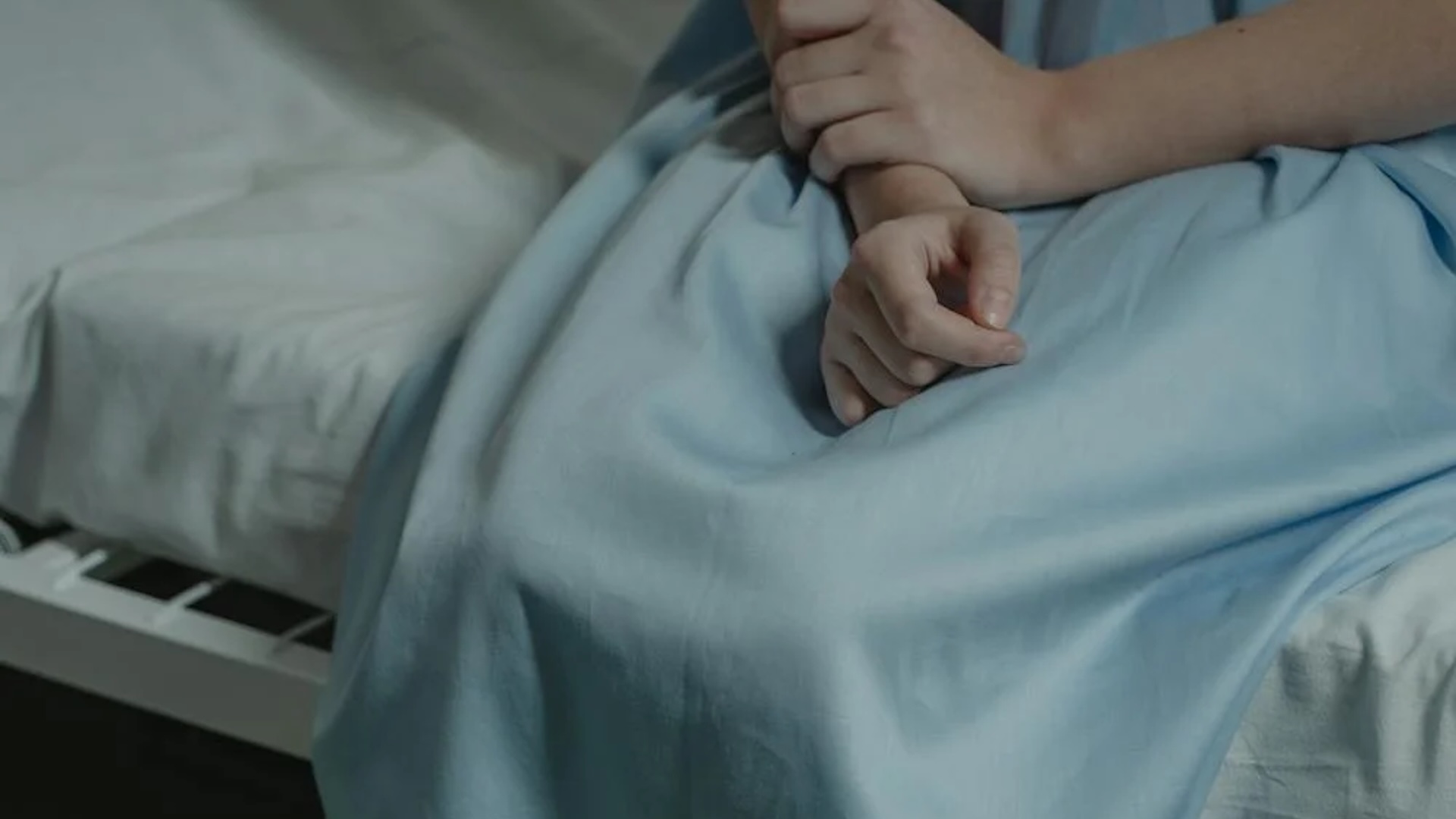Afeefa, who is now 19, says she had been “bubbly and outgoing” growing up. She loved school and being around people. She was a high achiever and actively involved in school activities, like student council and organising assemblies. She enjoyed family gatherings and putting on magic tricks.
“I’m not sure how it led to such severe mental health. There wasn’t anything inherently that could have been identified as a cause. Some people find it confusing and I find it confusing, but that’s just how it happened,” Afeefa says.
Aged 13, she started struggling with depressive symptoms and anorexia. She self-harmed and ran away from home multiple times. “I would have episodes where I became extremely distressed, doing anything I could to harm myself, lashing out. It escalated quickly.”
Police had to be involved in instances when she ran away from home, which Afeefa understands, but she believes their treatment of her was disproportionate to the risk.
“I had just turned 14. I was anorexic, so I was very slight, and I had five police officers, hefty guys, on top of me on the floor. That’s the force used for maybe someone with a knife, a big grown man. I was put in the back of a police car and restrained when I was just pulling my hair out.”
Afeefa does not blame the individual officers but believes “the system’s not built to support people in crisis”. She developed PTSD as a result of her experiences with the police, and had to be detained in a mental health ward for a second time.
Advertising helps fund Big Issue’s mission to end poverty
It has been more than three years since Afeefa left the mental health hospital, but problems persist. A new report from the Centre for Mental Health has found inpatient care is often characterised by unsafe levels of bed occupancy, chronic staff shortages and dilapidated facilities.
It said that people’s experiences in hospital can be “disturbing, and bring up intense feelings of despair within the confines of the ward and on return home”. Coercion, restraint, and overuse of sedation are also common.
These recent reports build on the findings of the Lord Darzi review into the state of the NHS, commissioned by the secretary of state for health and social care Wes Streeting. It revealed that mental health hospitals have increased restrictive interventions over the last four years, such as physically restraining patients to administer medication or gastro-nasal feeding.
Afeefa took part in the review when Lord Darzi visited her former unit. The report also claimed that too many inpatient services are in outdated buildings, with some patients “accommodated in Victoria-era cells infested with vermin”.
Meanwhile, HSSIB discovered that some mental health hospital buildings are unsafe with ligature risks, privacy concerns and limited space. Patients described them as ‘grim’ and ‘oppressive’.
Afeefa recalls her ward being “very small” and she was not allowed out for the first four months of her admission. “It was such a restrictive space. I just don’t understand how that’s seen as ethical, especially for a young person that’s in a key time of their development. The word I keep coming back to is ‘disempowering,’” she says.
Advertising helps fund Big Issue’s mission to end poverty
Afeefa remembers times when she would start getting distressed and physically shake and male members of staff grabbed her and pinned her down. That made her more panicked, so she was forcibly given medication to sedate her.
“How do you expect me to improve when you’re just on top of me hours a day, especially with the fact that I have trauma very similarly related?” Afeefa asks. She believes restrictive practices may sometimes be necessary but should be used sparingly.
“Restrictive practices are so overused, and people aren’t seeing a human behind that. The pressures within mental health services mean that professionals are just doing things for convenience. They’re doing things to shut patients up,” Afeefa says.
“But that’s not at all what person-centered care is and, especially when we’re dealing with young people in the most crucial point of development in their life. It’s not a time to mess about with their lives, and it’s not a time to be inflicting such traumatic things on them.”
A hospital spokesperson said that “physical restrictions are always used as a last resort, but can sometimes be essential to support a patient during a time of crisis when they are at a very high immediate risk to themselves or others”, while medication is “prescribed in line with patients’ care plans”.
“We provide care and treatment to some of the most complex mental health patients in the country, many of whom pose high levels of risk to themselves or others. In such cases, certain restrictions may be necessary to ensure safety, including restrictions on items of clothing which could be used to self-harm,” the spokesperson said.
Advertising helps fund Big Issue’s mission to end poverty
“We take patient safety and wellbeing extremely seriously, and where we receive individual complaints about standards of care, we investigate fully and transparently.”
After nine months, Afeefa was released – but she was readmitted to another ward in the mental health hospital six weeks later. She was battling to readjust to society, having spent so much time in the ward, and her trauma escalated.
Admitted to a different ward of the mental health hospital, Afeefa received much more compassionate care. “I was exhibiting the same behavior as I was in the other ward, but I was never restrained. I calmed myself down every time. I took oral medication perfectly fine. I was out in two months, and I wasn’t readmitted after that,” she says.
Good mental health services are desperately needed. For children and young people, the rate of referrals has increased from around 40,000 a month in 2016 to almost 120,000 a month in 2024. Around 343,000 children are waiting for mental health services, including 109,000 referrals waiting for more than a year, according to the Darzi review.
The government has recognised that the health service is “broken”, and the Mental Health Bill promises to modernise mental health legislation to give patients greater choice, autonomy, enhanced rights and support, and to ensure everyone is treated with dignity and respect throughout treatment. NHS England has also developed a vision of better inpatient mental health care.
“Now, we need the UK government to take action, delivering the political will and funding to make that vision a reality. We need a shift in culture, away from coercive approaches to trauma-informed ones, with high quality planning and resourcing to make that possible,” says Hughes.
Advertising helps fund Big Issue’s mission to end poverty
A Department of Health and Social Care spokesperson says: “Patient safety is paramount, and anyone receiving treatment in an inpatient mental health facility deserves safe, high-quality care, and to be treated with dignity and respect.
“Our Mental Health Bill, currently being considered by parliament, will ensure that people with the most severe mental health conditions receive better, more personalised treatment that is appropriate, proportionate, and compassionate to their needs.”
There are also plans to work with the NHS to transform care and recruit 8,500 more mental health workers across children and adult services to reduce delays and provide support more quickly.
Andy Bell, chief executive at Centre for Mental Health, adds that the promises in the Mental Health Bill must “go hand-in-hand with investment in services, staff and better facilities so that people can receive compassionate and effective support”.
Afeefa received attentive treatment from her community care team, who helped her get the therapy she needed for her PTSD. She is now doing much better and is at university studying to become a mental health nurse, and she is starting as a healthcare assistant soon and will be working on wards. She’s also running the London Marathon next year.
“I’m really quite excited for what is to come,” Afeefa says. “I want to continue the life I’m living and get myself more immersed in the field. I’m excited to be able to become a professional. But also outside of that, I’m excited to continue to make the most of my life, and to take back what was taken from me, and live in an empowering way because that wasn’t something I had for so long.”
Advertising helps fund Big Issue’s mission to end poverty
Do you have a story to tell or opinions to share about this? Get in touch and tell us more. This Christmas, you can make a lasting change on a vendor’s life. Buy a magazine from your local vendor in the street every week. If you can’t reach them, buy a Vendor Support Kit.





